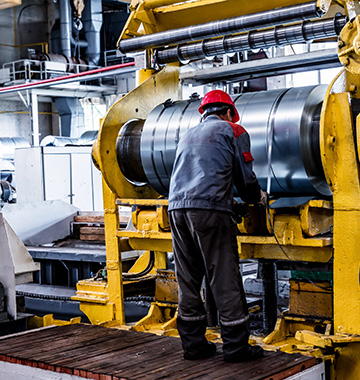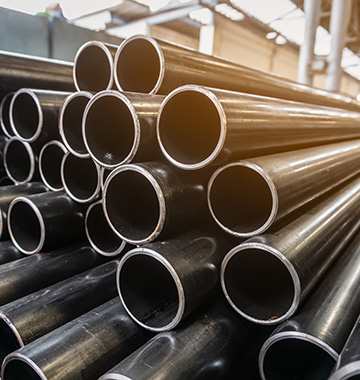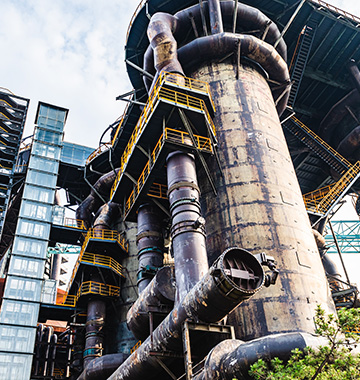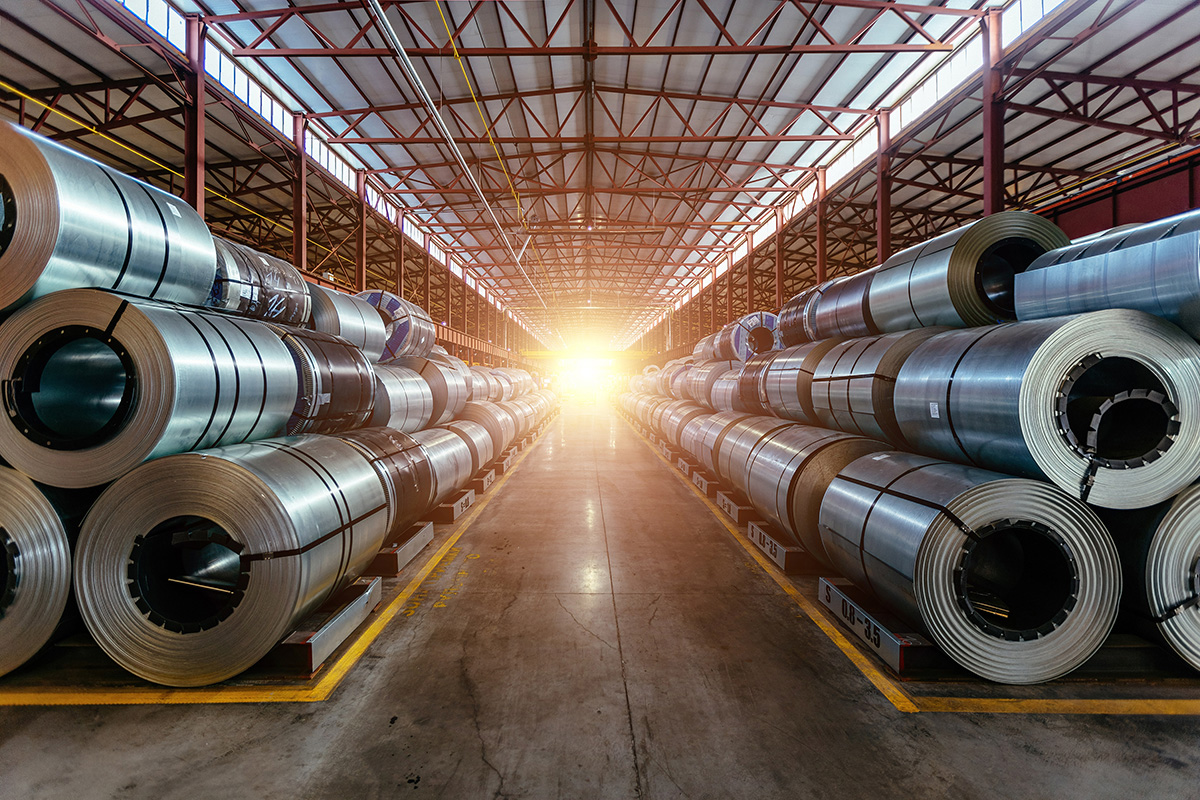How can you protect your business when the economy shifts?
Get A Trade Credit Insurance Quote
Our international team of trade experts is here to help. Contact us to learn more about our coverage options for the Metals Industry or request a free, no obligation quote that includes credit reports for your largest trade partners.
Metals Industry

The Metals Industry in the US is a vital part of manufacturing, supporting sectors like construction, automotive, and aerospace. It encompasses base metals, including iron and steel, aluminum, copper, nickel, lead, tin, zinc, with a focus on sustainability and technological advancements. Various applications exist for all these metals. The industry faces challenges such as tariffs, supply chain disruptions, and fluctuating demand.
Atradius covers businesses in numerous subsectors of the metals industry, including mining and quarrying, iron and steel, and metal manufacturing. With credit insurance playing a crucial role by protecting businesses from non-payment risks, ensuring financial stability, and enabling growth. It can also improve access to financing, as insured receivables are viewed favorably by lenders, fostering resilience in this dynamic sector.
Curious About Pricing?
Atradius is here to help. Contact us to learn more about our coverage options or request a free, no obligation quote that includes credit reports for your largest trade partners.

High inflation has significantly impacted the US Metals Industry. For instance, primary metal manufacturing import prices surged by 24% in 2021, marking the largest annual increase since 2006. Additionally, producer prices for primary metals rose by 67% in 2021 before declining in subsequent years. These price hikes have strained production costs, reduced demand, and heightened competition with international markets. Projections for 2025 suggest a gradual stabilization, supported by infrastructure investments and improved productivity.

Technology related to renewable energy is in high demand as the world focuses on transitioning to renewable energy and sustainability, as we have discussed in some of our recent blog posts. Rare earth metals, such as cobalt, lithium, copper, and nickel, are essential to produce batteries, supporting renewable energy. Additionally, copper is used in various renewable technologies, including wiring for solar panels, hydro, and wind energy. Increased consumption of rare earth materials and other base metals in the development of clean energy technologies could pose near-term challenges for the mining industry, potentially outstripping its ability to increase supply. With the emphasis on a lower carbon future, ESG considerations are also driving significant changes in capital investment in mining exploration and new projects, as major players in the space realign their investment strategies.

In times of economic prosperity and expansion, the industry fairs well. However, in times of contraction, it tends to perform poorly. Understanding this, we closely monitor macro-economic factors, such as employment levels, inflation, and fiscal and monetary policy, which exert significant influence on the industry’s success. These factors affect the prices of base metals and semi-finished products, subsequently impacting how businesses operate and manage inventory and price risk.

Historically, the steel industry has been seen as vital to national interests, and domestic production has been encouraged and protected. But increased globalization has led to excess capacity and consolidation has been slow. China is the biggest contributor to overcapacity and has only recently started to shut down excess capacity.

Securing and developing sustainable supply chains can be a challenge, especially for mining, transportation and materials processing. This could lead to sourcing and commodity deficits for metals and steel producers. Order backlogs persisted in 2022 due to constraints, with payment durations improving from 81 days in 2021 to 45 days in 2022. Additionally, tariffs on steel and aluminum imports have disrupted supply chains, raising costs. Projections for 2025 suggest stabilization, driven by infrastructure investments and improved domestic production.

China is known to have a dominance in global metal production and exports. For instance, China accounted for 53.9% of global crude steel production in 2023, with significant government subsidies enabling overcapacity. Additionally, China’s exports of aluminum products to the US have declined since 2018 due to anti-dumping measures, but its influence remains strong. Projections suggest that China’s planned steel production cuts could impact global markets, potentially benefiting US producers.

We’ve been targeting a particular customer for a long time, and thanks to the quick turnaround in approvals from Atradius, we were able to secure their business.
Benefits to Credit Insurance
Trade credit insurance is a risk management tool that can help protect your company’s commercial accounts receivable from the devastating effects of loss caused by a bankruptcy or protracted default of your buyers. No company wants to face the unknown. At Atradius, we give our clients peace of mind knowing that their policy protects them from a customer’s sudden inability to pay. Especially in an industry that must adhere to high-cost environmental regulations, trade credit insurance can help with cash flow and to ensure companies are financially stable.
Atradius analyzes industry trends and the risk of every buyer to ensure you are working with stable customers. If a previously stable customer starts showing signs of deteriorating payment trends, Atradius alerts you right away so you can take steps to protect and insure your accounts receivable. By evaluating the supply chain from every angle Atradius can alert clients to trouble coming down the pipeline before there is a loss.
Companies in the midst of an intense growth phase may need to put up accounts receivable as capital to receive additional funds from a bank. Having a trade credit insurance policy with Atradius that mitigates your risk means banks are more comfortable loaning the funds you need.
Atradius can offer companies a team of experts to support their trade credit insurance needs. Atradius is a global company with a presence on every continent. With innovative services and practical tools to manage a company’s receivable and build the foundation for solid business growth and success.
Get Your Questions Answered or Request a Quote
Atradius is here to help. Contact us to learn more about our coverage options or request a free, no obligation quote that includes credit reports for your largest trade partners.



